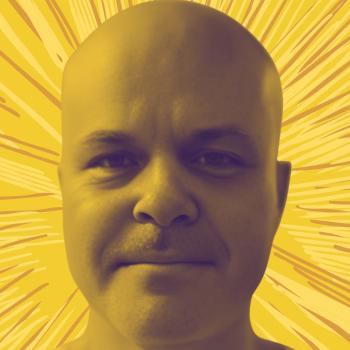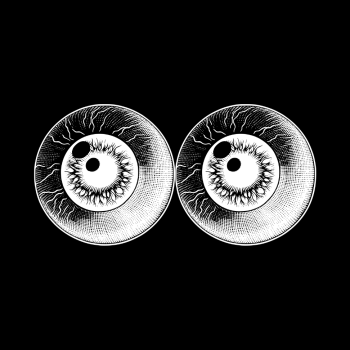
The Definition of Justice: Love or Revenge // Howard Thurman v. Michael Bell
Howard Thurman, in his Jesus and the Disinherited, and Michael Bell, in his God Hates Fags, have different ways of talking about the construction of oppression, enemies, and what one should do after the construction of such enemies. Such constructions determine if the work will actually lead to a sustainable peace or if the work will lead to the continuation physical and emotional violence. How one defines and treats their enemies speaks to whether or not they see their enemies as human or not. If the enemy is not seen as human, then there seems to be little hope for lasting solutions where people learn to love each other and live together. Understanding the author’s construction of oppression, formulation of enemy, and response to enemy are important to understanding the ethical points that the author is making, either implicitly or explicitly.
In Jesus and the Disinherited, Howard Thurman argues that the religion of Jesus must respond to “the poor, the dispossessed, and the disinherited” (36). Previously in the text, Thurman beckoned, “What does our religion to those with their backs against the wall?” (13). Judging from his time, social location, and some textual clues, one must assume that he was speaking to black people during the Civil Rights Movement, but the text is broad enough to apply to all people with their backs against the wall. In my opinion, this is where the beauty of Thurman lies, in the broadness of his message and the ability to apply it to both the oppressed and the oppressor. In the message of a Jewish Palestinian peasant, Thurman found salvation and argues that those with their backs against the wall can find their salvation in his message as well. Thurman calls the religion of Jesus, where one is taught to ‘love their enemy,’ “a survival technique for the oppressed” (29). Thurman’s survival technique is both practical and spiritual in its application for people of all oppressed backgrounds. “Wherever theSpirit appears, the oppressed gather fresh courage…” to ‘love their enemies’ and their self (29). The Spirit speaks to liberate all. For Thurman, “loving your enemy” is a step toward liberation.
In God Hates Fags, Michael Cobb uses the hate speech of Westboro Baptist Church (i.e. God Hates Fags) to speak to larger problems and trends in public policy in the United States. “It is important to recognize the public, doctrinal, and political gains opposition to ‘homosexuality’ has provided for Christian organizations, not to mention the Republican Party” (3). The hate speech also speaks to a larger fight over what it means to be ‘American.’ “Strong religious words about such an uncomfortable topic such as queer sexuality not only unite sexually conservative people across economic classes, ethnicities, and races, but are part of a tradition of collective rhetorical expressions of what it means to be an ‘American’” (6). Cobb argues that hate speech is helpful for constructing enemies. “Religious language…serves the United States as it continues to evolve into a coercive, extralegal empire that needs enemies inside and outside its borders” (30). For Cobb, identifying the enemy is the core ethical starting point. Next, working to gain power over your enemies is the next step and ultimate goal. Learning how to “love your enemies” is not part of his calculus.
Besides the difference in genre, I would contend that the reason that these two books sound very different in tone and outcome is because they take two different paths to construct the oppressed, the formulation of enemies, and responses to oppression. Howard Thurman constructs the oppressed as the people with “their backs against the wall” (13). This definition allows for great inclusivity as to who the oppressed are. Michael Cobb identifies the oppressed as queer folk, which he never really defines. This definition is assumed to speak to a particular group, but we don’t know who that group includes. Speaking to a particular group is not the problem. Speaking for one group to the dehumanization of the other group is the problem, because you are doing the same thing you are accusing others of. When constructing enemies, the authors speak differently as well. Howard Thurman grants wide latitude to who the oppressor is and therefore who the enemy is. The ambiguity of Thurman’s work leaves space to imagine the oppressed and the oppressor inhabiting the same person. Michael Cobb states that the enemy is Westboro Baptist Church, the Republican Party, Christian organizations, the United States government, and a few other entities. Cobb is very interested in cohesive enemies that all seem to flow from the language of Westboro Baptist Church. Howard Thurman encourages a “love your enemy” response to instances of oppression. Michael Cobb encourages a winning at all costs perspective, including lying if necessary (148). The texts seem to point in starkly different directions and toward starkly different responses with regard to the construction of oppression, formulation of enemies, and response to enemies. Judging the texts based on ethics one must ask, which conclusion seems to point to a more lasting justice and peace that values both the redeemed oppressed and oppressor as human? For me, the answer is obvious.
Howard Thurman: Jesus and The Disinherited
Michael Bell: God Hates Fags













